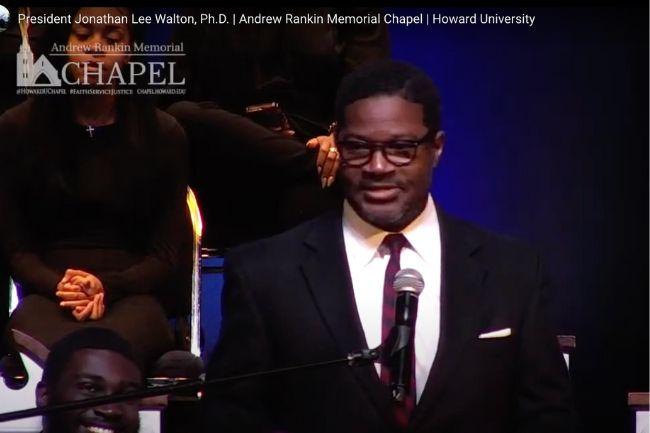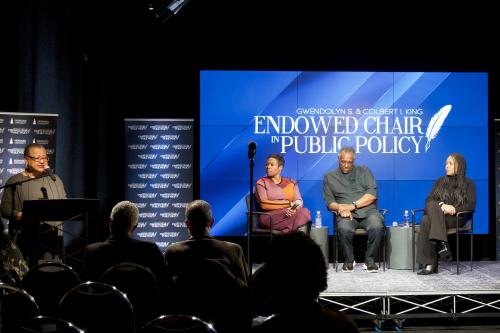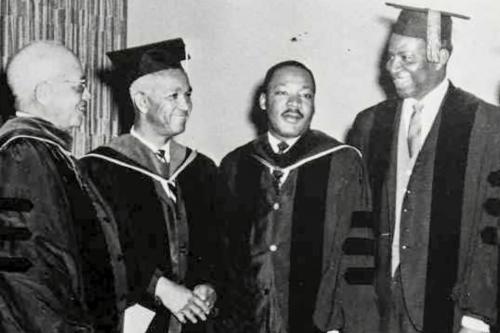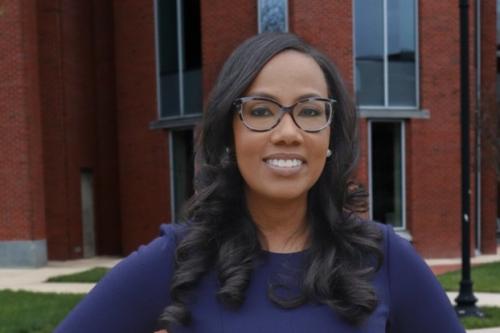Jonathan Lee Walton, Ph.D., president of the Princeton Theological Seminary, reminded the congregation gathered at Andrew Rankin Memorial Chapel Sunday, March 23, of the greatness bestowed upon us all by God, a greatness that Black people do not have to prove their worth to earn.
“You don’t need access to power to act with power,” said Walton. “Because you are already powerful. You are powerful with a purpose.”
Preaching from the gospel of Matthew 23:11, which reads “the greatest among you, shall be your servant,” Walton began his message defining Black excellence from a generational standpoint, noting the current “hashtag nature” of celebrating those from the community who achieve great success on social media.
“Black excellence is a communal celebration. It is a valuable source of inspiration and encouragement for African Americans who have exceeded the oppressive and stifling ceilings of inequity,” he explained. “Black excellence says, ‘I see you.’ For those feeling deflated and discouraged by the many impediments that incumber Black life, Black excellence shouts ‘Keep going. You are strong. You are a survivor.’”
That said, Walton cautioned to remember the larger context of the term and where it came from: the notion that African Americans needed to be “twice as good to get half the credit.” Previously referred to in the past as the “Black tax,” Walton called the requirement to prove Black dignity and worth in the face of inhumanity and disrespect unjust.
“It’s an unfair yet expected obligation of what it means to be Black in America,” he said, calling the practice or need a “racialized burden, no matter the name,” due to the pervasive nature of racism in this country. Walton went on to describe two ways to dehumanize Black people — to presume that Blackness is “always intellectually deficient and morally deviant,” or that Black people must “always be superhuman.”
“Black excellence is an unjust and ineffective response because it places undue burdens on people of color to be exceptional just to be included. We shouldn’t be required to have advanced degrees, Grammys, gold medals, or executive positions to merit the fundamentals of democratic freedoms and protections — to simply be viewed as human,” Walton said.
“Black people, like all people, are extraordinary and flawed. Brilliant and blameworthy, noble and negligent,” he added. “In a world of mediocrity, for us to have to assume the responsibility to be excellent at all times is an unjust burden we shouldn’t have to carry.”





